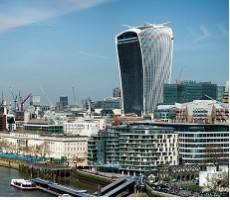September 10, 2015
Cycling to work better for motivation than bus, car, rail or tube 0
 The naming and shaming of Britain’s most overcrowded trains in a new report from the Department of Transport highlights the uncomfortable journey many workers have to endure every day. This is why a significant number of commuters long to be cyclists, according to recent research from Aviva, which found more than half of those who cycle to work said they arrive refreshed after their commute. Just 1 in 10 car and bus users claimed the same thing and that figure dropped to 1 in 20 for train and tube passengers. Almost a quarter of cyclists (24 percent) also reported feeling motivated after their typical commute, scoring higher than any other common form of commuting, including walking. This is double the proportion of bus passengers (12 percent) who claimed that their commute improved their motivation levels, and triple the proportion of drivers (8 percent) and four times the proportion of train and tube users (6 percent).
The naming and shaming of Britain’s most overcrowded trains in a new report from the Department of Transport highlights the uncomfortable journey many workers have to endure every day. This is why a significant number of commuters long to be cyclists, according to recent research from Aviva, which found more than half of those who cycle to work said they arrive refreshed after their commute. Just 1 in 10 car and bus users claimed the same thing and that figure dropped to 1 in 20 for train and tube passengers. Almost a quarter of cyclists (24 percent) also reported feeling motivated after their typical commute, scoring higher than any other common form of commuting, including walking. This is double the proportion of bus passengers (12 percent) who claimed that their commute improved their motivation levels, and triple the proportion of drivers (8 percent) and four times the proportion of train and tube users (6 percent).
































September 9, 2015
The way we talk about workplace productivity needs another dimension
by Mark Eltringham • Comment, Facilities management, Workplace, Workplace design
(more…)